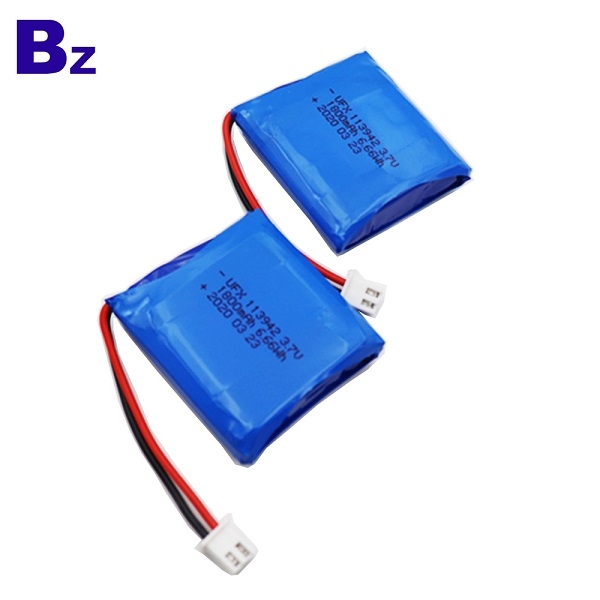What is a low-temperature lithium-ion battery?
Low-temperature lithium-ion battery refers to a lithium-ion battery that can work normally in a very low temperature environment. Low-temperature lithium-ion batteries include low-temperature 18650 lithium-ion batteries, low-temperature soft-pack polymer lithium-ion batteries, and low-temperature lithium iron phosphate lithium-ion batteries. Low-temperature lithium-ion batteries are widely used because they have the advantages of light weight, high specific energy and long life. Low-temperature lithium-ion batteries are made of special materials and processes and are suitable for use in sub-zero cold environments.

Low-temperature lithium-ion batteries are mainly used in: military weapons, aerospace, bomb-borne vehicle equipment, polar scientific research, cold belt rescue, power communications, public safety, medical electronics, railways, ships, robots and other fields. It can be seen that the application of low-temperature lithium-ion batteries is more military and industrialized. Generally, it is required to work normally in an environment of about -40 degrees, the discharge capacity should be kept above 80%, and the minimum working temperature can reach -50 ℃.
Interpretation of which low-temperature lithium-ion battery is better?
1. Soft pack low temperature polymer lithium ion battery
Soft-pack low-temperature polymer lithium-ion batteries should have the best performance at low temperatures, especially in smart wearable devices. The shape and size of the soft-pack low-temperature polymer lithium-ion battery can be manufactured according to the space reserved for the equipment, so that the equipment can fully meet the more ideal practical requirements. However, in terms of manufacturing costs, soft-pack low-temperature polymer lithium-ion batteries are the most expensive, which is one of the important factors for their limited application.
2. Low temperature 18650 lithium ion battery
The low-temperature 18650 lithium-ion battery is a fixed-size cylindrical steel-shell lithium-ion battery. Since the electrolyte used by the cylindrical steel-shell 18650 battery is liquid, the discharge performance in a relatively low-temperature environment varies greatly. In terms of application, due to the fixed battery performance and size, the scope of use is relatively small, but its production and manufacturing costs are relatively low, and the manufacturing cost is lower than that of low-temperature polymer lithium-ion batteries and low-temperature lithium iron phosphate lithium-ion batteries.
3. Low temperature lithium iron phosphate battery
There are two types of outsourcing for low-temperature lithium iron phosphate lithium-ion batteries, one is a steel case, and this type is currently used in the field of new energy batteries; the other is a soft-wrapped lithium iron phosphate battery with aluminum plastic film as the outer packaging. The battery performance is basically the same as the polymer lithium ion battery. It is better than the 18650 lithium ion battery in low temperature performance, but it is worse than the soft pack polymer lithium ion battery. Lithium iron phosphate batteries are inferior to the other two in terms of technology maturity. At the same time, in terms of manufacturing technology, equipment requirements are relatively high.
What are the factors that affect low-temperature lithium-ion batteries?
①High melting point solvent: due to the existence of a high melting point solvent in the electrolyte mixed solvent, the viscosity of the lithium ion battery electrolyte increases at low temperature, and the electrolyte solidification phenomenon will occur when the temperature is too low, resulting in the transfer rate of lithium ions in the electrolyte reduce;
②SEI film: under low temperature environment, the SEI film of the negative electrode of the lithium ion battery thickens, and the increase of the SEI film resistance leads to a decrease in the conduction rate of lithium ions in the SEI film. Finally, the lithium ion battery is charged and discharged under low temperature environment to form polarization effectiveness;
③ Positive structure: The three-dimensional structure of the positive material restricts the diffusion rate of lithium ions, especially at low temperatures. The discharge capacity of lithium iron phosphate battery at -20 ℃ can only reach 67.38% of the normal temperature capacity, while the nickel-cobalt-manganese ternary battery can reach 70.1%. The discharge capacity of lithium manganese ion battery at -20 ℃ can reach 83% of the normal temperature capacity.
To improve the performance of low-temperature lithium-ion batteries, the influence of comprehensive factors such as positive electrode, negative electrode, and electrolyte in the battery should be comprehensively considered. By optimizing the battery system as a whole, the polarization of the lithium ion battery at low temperature is reduced, and the low temperature performance of the battery is further improved. The use of lithium-ion batteries at low temperatures, whether charging or discharging, has poor performance, and it may have an impact on life, should still be prevented.


